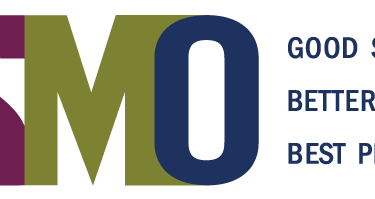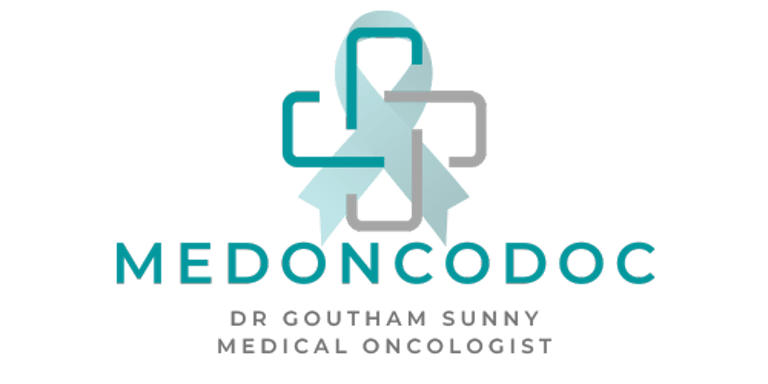Top updates from ESMO - July 2025
Welcome to Medoncodoc, where I aim to enhance cancer awareness, encourage screenings, and educate both patients and junior doctors. Join us in dispelling myths and staying updated on cancer diagnosis, treatment, and survivorship. Contact us to learn more and follow on social media for updates.
7/31/20255 min read


ESMO Oncology News: Key Updates and Insights from July 2025
July 2025 has been a landmark month for European and global oncology, with the European Society for Medical Oncology (ESMO) and its partners delivering pivotal research, training events, and updated guidelines that signal significant advancements in the field. Here’s a comprehensive overview of the most notable developments and themes from ESMO’s news, congresses, and publications throughout this month.
Spotlight on ESMO Gastrointestinal Cancers Congress 2025 Barcelona, 2–5 July 2025:
The ESMO GI Cancers Congress returned as a premiere event, drawing together the global GI oncology community. Highlights included:
Breakthroughs in Hepatocellular Carcinoma (HCC):
Patients with FGF19-overexpressing HCC responded favorably to a combination of the FGFR4 inhibitor irpagratinib and atezolizumab, with meaningful responses in both pretreated and first-line populations.
The phase IIIb SIERRA trial for tremelimumab and durvalumab (STRIDE regimen) showed reassuring safety data for poor prognosis HCC; efficacy data are awaited.
The TALENTACE trial reported that adding atezolizumab and bevacizumab after transarterial chemoembolisation (TACE) significantly prolonged progression-free survival for patients with unresectable, intermediate- to high-burden HCC.
Emerging Combinations in Gastro-Oesophageal Cancer:
A triple regimen involving givastomig (a claudin18.2/4-1BB bispecific antibody), nivolumab, and mFOLFOX showed impressive preliminary activity and a good safety profile in HER2-negative, CLDN18.2-positive metastatic gastro-oesophageal adenocarcinoma.
Colorectal Cancer (CRC) Genomic Innovations:
Single-cell and transcriptomic techniques have redefined CRC subtypes, enhancing immunotherapy eligibility and revealing new survival-associated signatures through AI.
Oligometastases and Biomarkers:
Dedicated webinars explored cutting-edge management for oligometastases in lung cancer, new biomarkers, and trial designs.
Quality of Life (QoL) in Immuno-Oncology:
Editorials emphasized the urgency of integrating robust QoL endpoints into clinical trials, citing new results from CheckMate 8HW and 9DW studies that showed no detrimental QoL effects from immunotherapy combinations, though QoL was only an exploratory endpoint in these trials.
ESMO Targeted Anticancer Therapies (TAT) Asia Congress 2025 Hong Kong, 18–20 July 2025:
The inaugural ESMO TAT Asia Congress championed global collaboration in early drug development. Key areas of discussion included:
Innovation in drug design and clinical trial methodology.
Next-generation kinase inhibitors, immunotherapies, macromolecules, and cell-based therapies.
Challenges in regulation, collaboration between academia and industry, and digital transformation within oncology.
Multi-stakeholder engagement aimed at accelerating transformative cancer research and expediting new therapies from lab to clinic[1][2].
Advances in Breast Cancer: ESMO Breast Cancer 2025 Munich, 14–17 May 2025:
While this event was in May, several important studies and discussions gained renewed attention in July:
New Therapeutic Breakthroughs:
Combination therapy with imlunestrant and abemaciclib in ER+ advanced breast cancer demonstrated progression-free survival benefits, including for those progressing on CDK4/6 inhibitors[3][4].
Tucatinib and trastuzumab continued to display durable benefit in heavily pretreated HER2-mutated metastatic cases[5].
An antibody-drug conjugate (emiltatug ledadotin) showed early efficacy for triple-negative breast cancer (TNBC).
Personalized and De-escalated Treatment:
Data suggested that some early-stage ER+/HER2– breast cancers may not require chemotherapy, with careful patient selection.
Biomarkers and ctDNA:
Use of circulating tumor DNA for monitoring resistance to endocrine therapy, and the predictive value of tumor-infiltrating lymphocytes (TILs) in TNBC were explored.
Long-term Survival:
The APHINITY trial’s >10-year data confirmed survival benefit of dual HER2 blockade in node-positive cases.
Young Women with Breast Cancer:
New insights were presented into the unique needs and survivorship issues faced by young women with breast cancer, pointing to areas for enhanced support[5][6].
Groundbreaking Guideline Updates
Hepatocellular Carcinoma: The ESMO Clinical Practice Guidelines (2025) for HCC introduced a raft of innovations:
- Personalized surveillance with risk-adapted ultrasound and AFP intervals.
- Improved diagnostic precision via advanced imaging (CT, MRI, contrast-enhanced ultrasound) and standardized reporting (LI-RADS).
- Emphasis on the emerging role for immunotherapies (atezolizumab + bevacizumab; durvalumab + tremelimumab) and patient-tailored selection for transplantation or minimally invasive local therapies.
- Standardized multidisciplinary team management and post-treatment surveillance protocols, all aiming to boost early detection and optimize outcomes[7].
Non–Oncogene-Addicted Metastatic NSCLC:
- Updated ESMO guideline recommendations highlighted new first-line treatments for metastatic NSCLC lacking actionable molecular targets, reflecting rapid progress in the field[8].
Immuno-Oncology and Multimodal Advances - ESMO Immuno-Oncology Congress 2024 (Geneva, Dec 2024):
- Review and integration of novel diagnostics, biomarkers, and therapeutic strategies in IO.
- Translational research on tumor microenvironment, immunometabolism, and gut microbiome’s role in therapy response.
- Enhanced industry-academia collaborations for pushing IO frontiers[9][10][11].
Cross-Cutting Themes and Policy Initiatives
- Artificial Intelligence (AI) and Digital Transformation: AI-driven analysis is increasingly crucial in the classification and management of CRC and other cancers, facilitating identification of previously unrecognized prognostic markers.
- Patient-Centered Oncology and Advocacy: ESMO advanced the dialogue on integrating patient perspectives, particularly through ambassador programs and by highlighting the importance of patient involvement in research design.
- Diversity and Gender Equity: Marking a decade for the Women for Oncology program, ESMO reaffirmed its commitment to addressing gender gaps across oncology leadership and research.
Educational and Public Health Initiatives
- Webinar Series: Joint IARC-ESMO webinars enriched practitioner and patient education, with July’s focus on nutrition, body weight, and their relationship to cancer risk in adults and children[12].
- Live Reporting and Newsroom Access: The ESMO Daily Reporter provided real-time coverage, expert opinions, and critical appraisals of major scientific presentations and controversies throughout its congresses.
Looking Ahead
With major upcoming congresses such as the ESMO Congress in October 2025 (Berlin) and continued updates in practice-changing research, ESMO remains at the forefront of oncology innovation, advocacy, and education. July’s activities have reinforced the increasingly multidisciplinary, collaborative, and patient-centered direction of global cancer care.
In summary, July 2025 brought landmark studies in GI and breast cancers, expansion of multidisciplinary professional gatherings, rigorous new guidelines, and a growing emphasis on digital, patient-driven, and equitable cancer care. ESMO’s leadership continues to shape future standards for research, policy, and clinical practice in oncology[13][5][3][7][2][8].
[1] https://www.esmo.org/meeting-calendar/esmo-immuno-oncology-congress-2024
[2] https://www.sitcancer.org/blogs/thomas-martin/2024/12/16/esmo-io-meeting-2024-dec-79
[3] https://www.esmo.org/meeting-calendar/esmo-targeted-anticancer-therapies-asia-congress-2025
[4] https://www.esmo.org/meeting-calendar/past-meetings/esmo-tat-2025/programme
[5] https://oncologypro.esmo.org/congress-resources/esmo-breast-cancer-2025
[7] https://www.oncology-central.com/editors-highlights-from-esmo-breast-cancer-2025/
[8] https://www.docwirenews.com/conference/esmo-breast-cancer-25
[10] https://oncodaily.com/societies/clinical-practice-guideline-316064
[16] https://www.esmo.org
[18] https://oncodaily.com/insight/esmo-gastrointestinal-cancers-323053
[19] https://www.iarc.who.int/news-events/iarc-esmo-webinar-series-nutrition-diet-and-cancer/
[24] https://www.esmo.org/meeting-calendar/esmo-congress-2025
[25] https://www.esmo.org/meeting-calendar/esmo-congress-2025/press-media
[26] https://www.docwirenews.com/post/key-updates-from-esmo-breast-cancer-2025-shaping-the-future-of-care
[27] https://www.esmo.org/meeting-calendar/esmo-breast-cancer-2025
[29] https://outcomes4me.com/article/esmo-breast-cancer-2025-key-highlights-you-should-know/
[33] https://www.esmo.org/meeting-calendar/past-meetings/esmo-immuno-oncology-congress-2024/programme
Connect
Raising cancer awareness and encouraging screenings online.
Contact
Follow
© 2025. All rights reserved.
